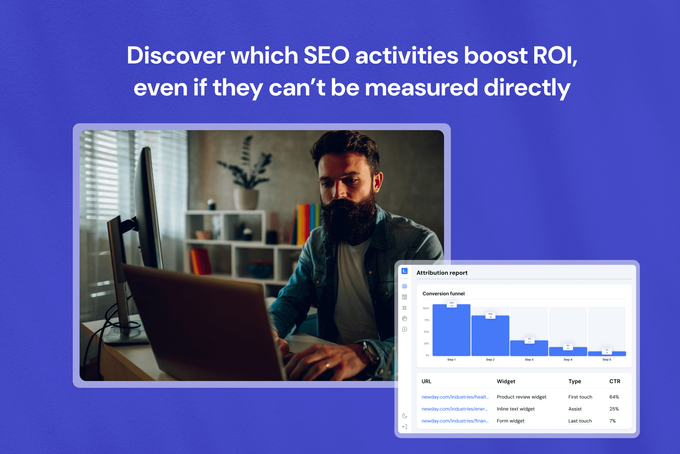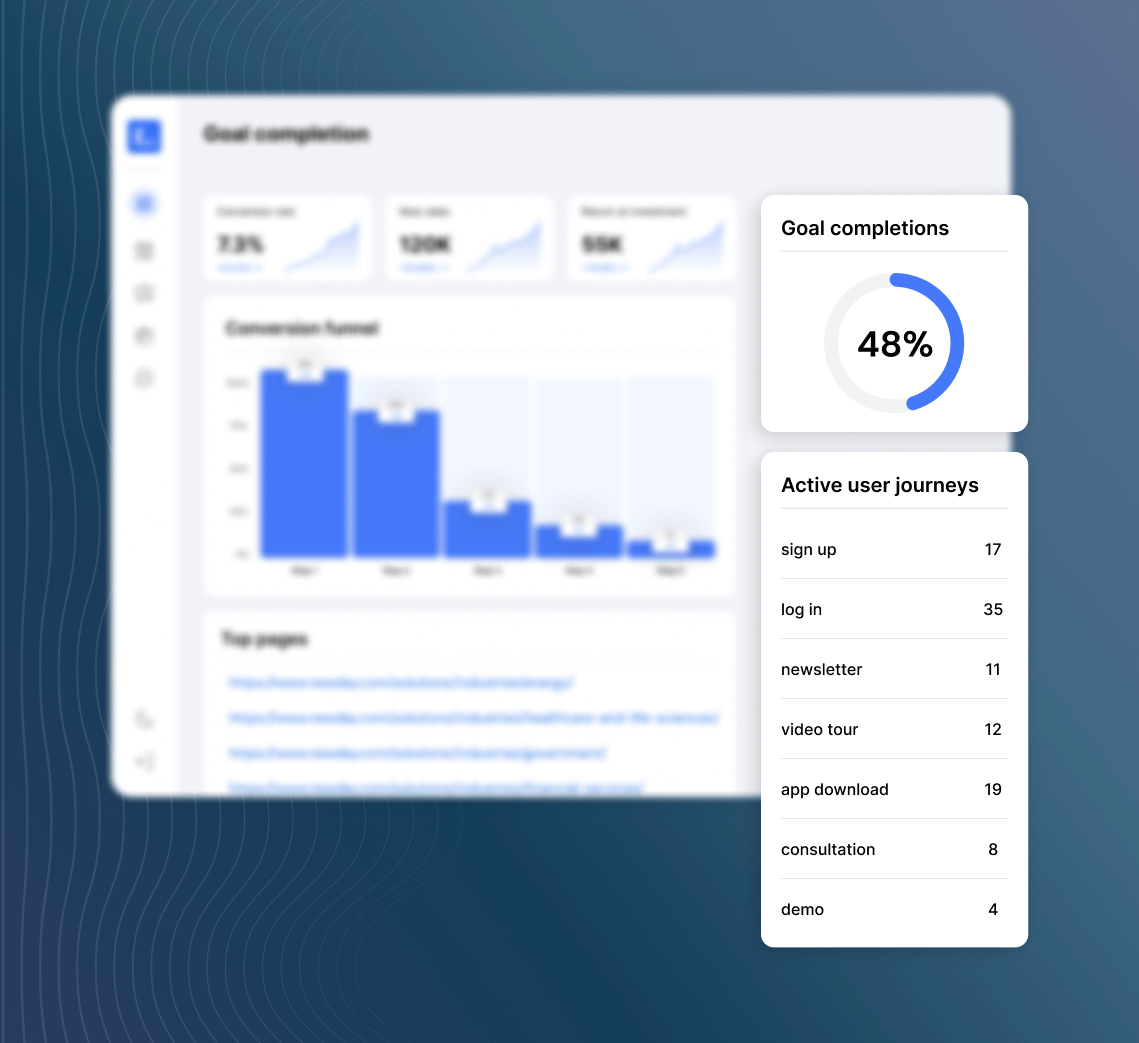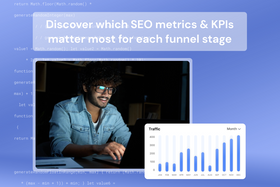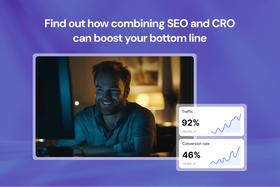SEO ROI: Can it always be measured?
Learn how to bridge the gap between SEO and performance marketing and see what you can and can't (but should) measure in SEO.
Updated October 4, 2024

AI Summary
Measuring ROI is essential for any marketing channel, including SEO. However, measuring ROI is often more complicated for SEO than for paid channels. Google's ranking algorithms are complex, and you can't measure the direct contribution of every SEO activity. That doesn't mean you shouldn't do them.
SEO still plays a vital role in driving conversions. So, you need to understand which activities can be measured, which can't, and which of those unmeasurable activities are still important. You also need the tools to help you decide how much to invest in each unmeasurable activity to achieve your marketing goals.
Key takeaways
- SEO often delivers a higher ROI than most other channels.
- You can measure the direct impact of some SEO activities but not others.
- You need an experienced SEO professional to know where to invest beyond activities that you can measure directly.
What you can and can't measure in SEO
In order to understand what you can and cannot measure, let's separate the usual SEO activities into three groups:
- Technical SEO: You need to ensure that your website is getting indexed, loading quickly, and functioning properly. Technical aspects like these account for about 10% of your work.
- Website: This includes your homepage, product pages, service pages, and other content that communicates who you are and what you do. Your website is like your digital business card, so it needs to be of the highest quality.
- Content creation: The third and most important SEO activity is the content you produce. This includes everything from resource pages, guides, and blogs to white papers, videos, and podcasts.
Most of your ongoing SEO work is content. You won't find a website ranking well for competitive keywords without a lot of quality content—unless they're a big brand.
You also need authority to rank well, generate traffic, and ultimately drive conversions and ROI. You can build authority in different ways. Google uses various signals, such as your social media presence, how much time users spend on your site, and brand mentions across the internet. However, the most significant factor is the content you create. Once your technical SEO is in place and your site reflects your brand, your primary focus should be content.
» Get top-tier SEO content that builds trust and establishes authority.
Content's direct contribution to ROI isn't always measurable
To measure SEO ROI, you look at how much you're investing in content creation, the traffic it generates, and the number of conversions that result from that traffic. That's the easy part. The difficult part is measuring the direct contribution of your content to your bottom line.
» Learn how to forecast SEO ROI.
Let me give you an example from two different ends of the spectrum. Take a website that sells online therapy. There are many bottom-of-the-funnel keywords related to online therapy, so they can create content that converts around terms like "online therapy for men with depression." Then, they could have a feature page targeting "online therapy sessions." Their bottom-of-the-funnel content can link to this page, sending a lot of traffic there so that it ranks well.
Now, consider the other end of the spectrum: locksmith services. When someone needs a locksmith, they usually search for "locksmith near me" in an emergency. A website for a locksmith service can have content on home maintenance topics like "how to replace a lock" that adds authority to the site. However, someone reading this article is probably looking to fix the lock themselves, not call a locksmith, so traffic from that content probably won't convert. But without this content, the site won't rank for the keyword it wants to because Google won't know it's a good site.
The bottom line is that, in many cases, you need to create a lot of content for SEO, but you can't always directly attribute it to ROI. You might be ranking for specific keywords because of your content activities, but there's often no direct link between your content and conversions.
Some SEO activities are essential even if they can't be measured
Another example is link building. Many websites, especially in competitive industries, have bought links to boost their authority. These sites often have millions of backlinks, and big websites may spend tens of thousands of dollars on them every month. They can't directly attribute value to these backlinks since they don't bring traffic and aren't easily measurable, but the SEOs managing these sites know that not buying links would cause them to lose rankings.
While link building is declining because of Google, this still highlights an important point: some activities are crucial for maintaining rankings, even if their ROI can't be directly measured. You might know how much you're spending on links or content creation and which keywords you rank for, but there's no direct way to measure whether buying another link or writing another article will impact your bottom line. Unlike PPC, where increasing your budget leads pretty much guarantees more traffic, SEO relies more on your own discretion and ability to make good judgment calls.
» Discover proven techniques to improve SEO ROI.
Measure and improve SEO ROI
If you want to get ROI from SEO, you need an experienced SEO professional with enough experience to know where to invest beyond the directly measurable activities. That's the key if you want your brand to rank for competitive keywords that aren't necessarily related to your content. Entail offers the expertise and SEO ROI tool you need to navigate these complexities and optimize your SEO strategy to get the best possible return.





